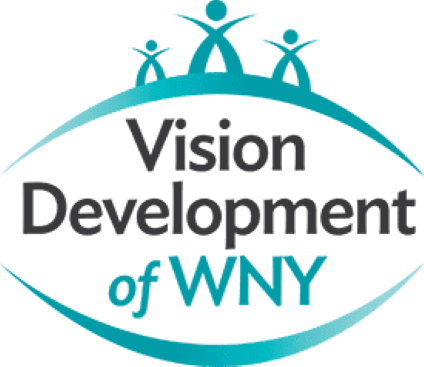Syntonic Phototherapy
Syntonic Phototherapy
Syntonic phototherapy (light therapy) uses light to enhance visual functions and overall wellbeing. Supporting proper visual functioning is crucial as 80% of learning relies on vision, which impacts academic success, athletic performance, work productivity, and daily activities of children and adults. The Behavioral and Neuro-Optometrists at Vision Development of WNY utilize syntonic light therapy to address visual disorders hindering children's learning abilities.
Light therapy has been used for years in healthcare, from treating infant jaundice to successfully treating amblyopia (lazy eye) and strabismus (eye-turn) in children and adults.

How Does Syntonic Phototherapy Work?
Using targeted light frequencies influences the autonomic nervous system through the eyes. Patients look into light sources with specific colored glass inserts that filter frequencies of light, signaling the brain to respond to these stimuli. Different light colors stimulate the sympathetic (fight or flight) or parasympathetic (rest and digest) nervous systems. Monitoring progress involves measuring pupil reaction, functional visual field, and binocularity before and during treatment sessions. This process can modulate neural pathways, creating balance in the nervous system and improving visual and physiological functions.
Balance of your nervous system is restored through "syntony" - a harmonious state of the integrated nervous system. Syntonic Light Therapy can provide long-lasting results once the balance is restored.

What are the Benefits of Syntonic Light Therapy?
Syntonic phototherapy is often paired with vision therapy, lenses, or prisms and is clinically proven to:
- Improve visual acuity and contrast
- Improve visual attention
- Increase energy
- Improve quality of sleep and digestion
- Increase relaxation
- Reduce eye strain
- Reduce light sensitivity
- Reduce headaches/migraines
- Reduce anxiety
Who Can Benefit from Syntonic Phototherapy?
Syntonic phototherapy benefits children with ADHD, and academically struggling students and athletes to stressed or anxious-prone professionals. Syntonic light therapy can help those dealing with chronic headaches, sleep and digestion issues.
Light therapy benefits more than functional vision. Balancing the nervous system can help with learning disorders and ADHD or reduce the effects of stress and trauma especially in traumatic brain injury or stroke patients. Syntonic phototherapy should be treated under the guidance of a Behavioral or Neuro-Optometrist who has completed coursework with the College of Syntonic Optometry. Dr. Dick O'Connor or Dr. Alyssa Fortuna of Vision Development of WNY can help you understand if syntonic light therapy can benefit you.
Get Started Today!
Contact Vision Development of WNY to determine if Syntonic Light Therapy is right for you or a loved one.
